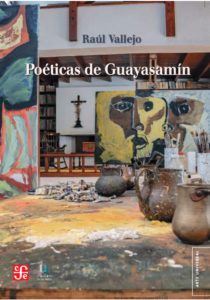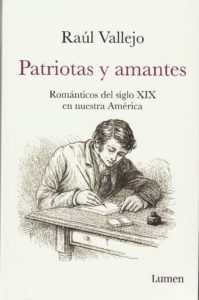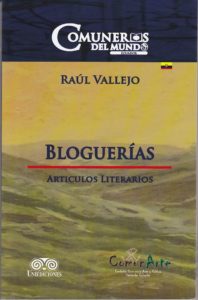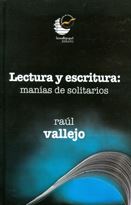Poéticas de Guayasamín, 2022
 Sobre Oswaldo Guayasamín se ha escrito mucho: creador de un estilo a todas luces reconocible y autor de aclamados retratos de pueblos y personajes de la historia de América Latina, se trata de uno de los pintores más internacionales del Ecuador. Por eso, una nueva publicación acerca de su obra necesitaba un enfoque distinto. «Hay que sentir la obra de arte, en las vísceras de cada uno, de la misma forma que nació del artista que la produjo», escribe, lúcido, Raúl Vallejo, en las páginas de este libro, en el que pone en práctica esa sentencia al aproximarse al arte de Guayasamín con este texto transgenérico. A partir de archivos, fotografías, y recuerdos personales —como una entrevista entre el personaje y el autor realizada en 1988—, Vallejo perfila un retrato del retratista a través de géneros como la poesía, el microrrelato, la biografía, el ensayo, la crónica, entre otros; porque la obra del artista no se termina mientras haya quien pueda seguir creando a partir de ella.
Sobre Oswaldo Guayasamín se ha escrito mucho: creador de un estilo a todas luces reconocible y autor de aclamados retratos de pueblos y personajes de la historia de América Latina, se trata de uno de los pintores más internacionales del Ecuador. Por eso, una nueva publicación acerca de su obra necesitaba un enfoque distinto. «Hay que sentir la obra de arte, en las vísceras de cada uno, de la misma forma que nació del artista que la produjo», escribe, lúcido, Raúl Vallejo, en las páginas de este libro, en el que pone en práctica esa sentencia al aproximarse al arte de Guayasamín con este texto transgenérico. A partir de archivos, fotografías, y recuerdos personales —como una entrevista entre el personaje y el autor realizada en 1988—, Vallejo perfila un retrato del retratista a través de géneros como la poesía, el microrrelato, la biografía, el ensayo, la crónica, entre otros; porque la obra del artista no se termina mientras haya quien pueda seguir creando a partir de ella.
Para la Universidad de las Artes del Ecuador es un honor participar en esta publicación junto al Fondo de Cultura Económica y al escritor Raúl Vallejo, quien emprendió la escritura de este libro en 2019, por el centenario del natalicio del pintor, y cuyo nombre —como el de Guayasamín— es altamente representativo de la cultura ecuatoriana en el mundo.
José Miguel Cabrera Kozisek
Director de UArtes Ediciones
A lot has been written about Oswaldo Guayasamín: creator of a very recognizable style and author of praised portraits of peoples and celebrities of Latin American history, he was of the most internationally renowned painters of Ecuador. That is why a new publication about his work needed a very different approach. «You need to feel a work of art in you guts, the same way the it was created by its author», lucidly writes Raúl Vallejo in the pages of this book, in which he practices this statement by approaching Guayasamín’s art with a ‘transgeneric text’. From a series of files, photos, and personal mementos —like an interview made by the author to Guayasamín in 1988—, Vallejo outlines a portrait of the painter through different genres, such as poetry, flash fiction, biography, essay, chronicle, among others. Because the work of an artist does not end while someone can still create based on it.
For the Universidad de las Artes of Ecuador is an honor to participate in this publication, along with the Fondo de Cultura Económica and author Raúl Vallejo, who undertook the writing of this book in 2019, for the centennial of the painter, and whose name —as well as Guayasamín’s— is highly representative of the Ecuadorian culture in the world.
José Miguel Cabrera Kozisek
Director of UArtes Ediciones
Documentos para descargar:
- Guayasamín desde distintas orillas
- Los textos transgenéricos de Raúl Vallejo se congregan en Poéticas de Guayasamín
- La palabra ardiente
- Guayasamín, desde los márgenes. Tomado de la Revista Rocinante, No. 168
- Poéticas de Guayasamín: entre la imagen fotográfica y la imagen poética
- «Anda que anda»: Poéticas de Guayasamín, de Raúl Vallejo
Enlaces
Patriotas y amantes, 2017

Los novelistas, los poetas, los pintores, los músicos, nos han hecho comprender que no es posible integrar completamente al ser humano en un proyecto racional. Y ello porque los humanos oponemos con frecuencia otro tipo de visiones —estéticas, eróticas, etc., en resumen, irracionales— que desdicen la armonización integral con la Historia. Creadores de esta otra historia, los artistas, no obstante, también participan y están presentes en la Historia política e institucional. Bolívar, Manuela Sáenz, Olmedo, Mera, Isaacs, héroes y cantautores, se convierten así en el eco de la vida de las colectividades independientes en la América del siglo XIX. Y este es el mundo de la espléndida investigación que nos ofrece Raúl Vallejo en Patriotas y amantes.
Fernando Juan García Lara
Universidad Pablo de Olavide, Sevilla, España
The novelists, the poets, the painters, the musicians, have made us understand that it is not possible to completely integrate the human being in a rational project. And that is because we humans frequently oppose other type of visions —aesthetic, erotic, etc., in short, irrational— that don’t go with the integral harmony with History. Nevertheless, creators of this other history also participate and are present in the political and institutional History. Bolívar, Manuela Sáenz, Olmedo, Mera, Isaacs, heroes and writers, thus turn in the echo of the life in the independent collectivities in XIX Century America. And this is the world of the splendid investigation that Raúl Vallejo presents to us in Patriotas y amantes.
Fernando Juan García Lara
University Pablo de Olavide, Sevilla, Spain
Bloguerías, 2017

El blog es un territorio de libertad cuyo límite radica en la responsabilidad del bloguero para con la palabra. A veces, transido por las urgencias de la coyuntura; otras veces, respondiendo al gusto propio, el blog permite colgar en la biblioteca infinita y mutante que es Internet un insumo para el diálogo de los cibernautas.
Sin las ampulosidades del lenguaje académico y con la sencillez expositiva de la divulgación, pero siempre con la rigurosidad y sentido profundo de la crítica, estos textos conjugan las reflexiones de un escritor que, a partir de libros, películas y otros asuntos, nos entrega, de forma diáfana, su visión sobre algunos aspectos de la cultura literaria y artística.
De su blog acoso-textual.blogspot.com Raúl Vallejo ha seleccionado en Bloguerías treinta y cuatro artículos para nuestro disfrute en el objeto libro que el lector tendrá en sus manos.
A blog is a land of freedom which limits lies in the responsibility of the blogger with words. Sometimes, beset by the urgencies of the conjuncture; other times, answering to their own taste, a blog allows to upload to the infinite and changing library that is the Internet an input for a dialogue between cybernauts.
Without the bombast of academicals language and with the simplicity of divulgation, but always with the rigor and deep sense of the critics, this texts combine the reflections of a writer who, from books, movies, and other issues, gives us, in a very clear way, his vision on some of the aspects of the literary and artistic culture.
From his blog acoso-textual.blogspot.com, Raúl Vallejo has selected in Bloguerías thirty-four articles for our enjoyment in the object book that the readers will have in their hands.
Lecturas y escritura: manías de solitarios, 2010

Lecturas y escritura: manías de solitarios es una recopilación de ensayos literarios, entrevistas y trabajos académicos que habían estado dispersos hasta hoy. El libro apareció el 23 de abril de 2010 con motivo del día del Libro y de la Rosa, editado por la Campaña Nacional “Eugenio Espejo” para el Libro y la Lectura. Reúne sendas entrevistas a dos premios Nobel: Gabriel García Márquez y José Saramago, así como un ensayo sobre la poética de un tercero: Juan Ramón Jiménez. Encontramos también en la sección «Poética y Yografía», tres ensayos sobre el quehacer literario del propio autor, la poesía y el ensayo en tanto género literario. Finalmente, el libro reúne tres extensos trabajos académicos sobre Juan León Mera, Medardo Ángel Silva y Pablo Palacio.
En palabra de Raúl Vallejo: «Pretendo que lo dicho aquí conmueva el espíritu crítico de mis hipotéticos lectores. Pretendo que esta escritura realizada desde la meditación solitaria se convierta en una voz que consiga la compañía de los solitarios que farrean en la fiesta del lenguaje. Estos ensayos son un muestrario de lecturas mías que pretendo que permanezcan en lo escrito.»
Lecturas y escritura: manías de solitarios is a compilation of literary essays, interviews and academic works that had been scattered up to this day. The book was released on April 23, 2010 for the Book and the Rose Day, and edited by National Campaign for Books and Reading “Eugenio Espejo”. It gathers the interviews to two Nobel Prizes: Gabriel García Márquez and José Saramago, as well as an essay about the poetics of a third: Juan Ramón Jiménez. We can also find, in the chapter «Poetics and I-graphy», three essays about the literary trade of the author, the poetry and the essay as a literary genre. Finally, the book includes three extensive academic papers about Juan León Mera, Medardo Ángel Silva, and Pablo Palacio.
In the words of Raúl Vallejo: «I aspire that what is said here moves the critic spirit of my hypothetical readers. I hope that the writing done from the solitary meditation becomes a voice that gets the company of the loners that party in the feast of language. This essays are a sample of my readings that I hope they remain in writing».
Documentos para descargar:
